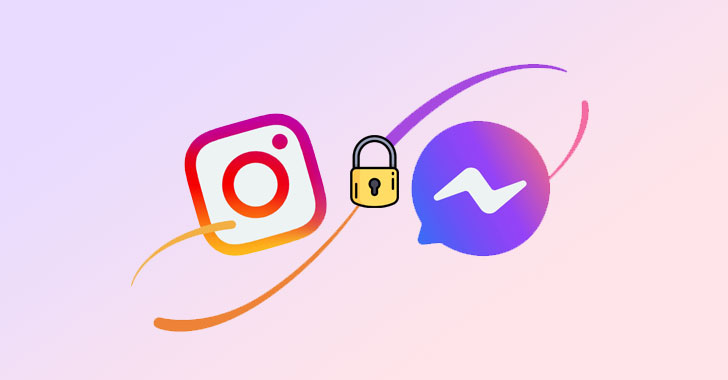Meta, the parent company of Facebook, Instagram, and WhatsApp,
disclosed that it doesn’t intend to roll out default end-to-end
encryption (E2EE) across all its messaging services until 2023,
pushing its original plans by at least a year.
“We’re taking our time to get this right and we don’t plan to
finish the global rollout of end-to-end encryption by default
across all our messaging services until sometime in 2023,” Meta’s
head of safety, Antigone Davis, said[1]
in a post published in The Telegraph over the weekend.
The company said it intends to employ a mix of non-encrypted
data across its apps as well as account information and reports
from users to improve safety and combat abuse, noting that the goal
is to prevent harms from happening in the first place, giving users
more control, and actively encouraging users to flag harmful
messages. Meta had previously outlined[2]
plans to be “fully end-to-end encrypted until sometime in 2022 at
the earliest.”
Meta’s products are used by 2.81 billion users[3]
on a daily basis as of September 2021.
The shift to encryption is a crucial element of Meta’s proposals[4]
to build a unified privacy-focused communications platform the
company announced in March 2019, with CEO Mark Zuckerberg stating
that the “future of communication will increasingly shift to
private, encrypted services where people can be confident what they
say to each other stays secure and their messages and content won’t
stick around forever.”
To that end, the social media giant merged[5]
Messenger and Instagram chats last year to allow cross-app
communications among its family of popular apps. It’s worth noting
that while WhatsApp is end-to-end encrypted by default, Facebook
Messenger and Instagram are not. The company first launched E2EE in
its Messenger app in 2016, though it’s only available by switching
to a “Secret Conversation[6]” mode that’s limited to
mobile apps.
Meta has since extended E2EE[7]
for voice and video calls in Messenger earlier this August, along
with launching a new opt-in setting as part of a limited test in
certain countries that will turn on the feature for Instagram
Direct Messages.
The development comes as questions are being raised about how
platforms could enable E2EE while also supporting law enforcement
investigations, raising concerns that wider encryption protections
could acutely curtail efforts to tackle child sexual abuse and
other problematic content.
“Sadly, at a time when we need to be taking more action…
Facebook is still pursuing end-to-end encryption plans that place
the good work and the progress that has already been made at
jeopardy,” U.K. General Secretary Priti Patel said[8]
in April. “We cannot allow a situation where law enforcement’s
ability to tackle abhorrent criminal acts and protect victims is
severely hampered.”
Complicating matters are new regulations in India[9] that require messaging
apps to trace the “first originator” of messages shared on
WhatsApp, in a move that could break encryption safeguards,
prompting the company to file a lawsuit on the grounds that such a
provision invades users’ privacy.
The Indian government, in an affidavit filed in response late
last month, defended the law claiming platforms that “monetize
users’ information for business/commercial purposes are not legally
entitled to claim that it protects privacy,” and that such a rule
is essential to counter fake news and offences concerning national
security and public order.
“The Rule does not contemplate the platforms breaking the
end-to-end encryption. The Rule only contemplates the platform to
provide the details of the first originator by any means or
mechanism available with the platform. If the platform does not
have such means, the platform ought to develop such [a] mechanism
considering the platform’s widespread prevalence and the larger
public duty,” the affidavit said[10].
References
- ^
said
(www.telegraph.co.uk) - ^
outlined
(about.fb.com) - ^
2.81
billion users (investor.fb.com) - ^
proposals
(about.fb.com) - ^
merged
(about.fb.com) - ^
Secret
Conversation (www.facebook.com) - ^
extended
E2EE (thehackernews.com) - ^
said
(www.bbc.com) - ^
new
regulations in India (thehackernews.com) - ^
said
(www.ndtv.com)
Read more https://thehackernews.com/2021/11/facebook-postpones-plans-for-e2e.html
